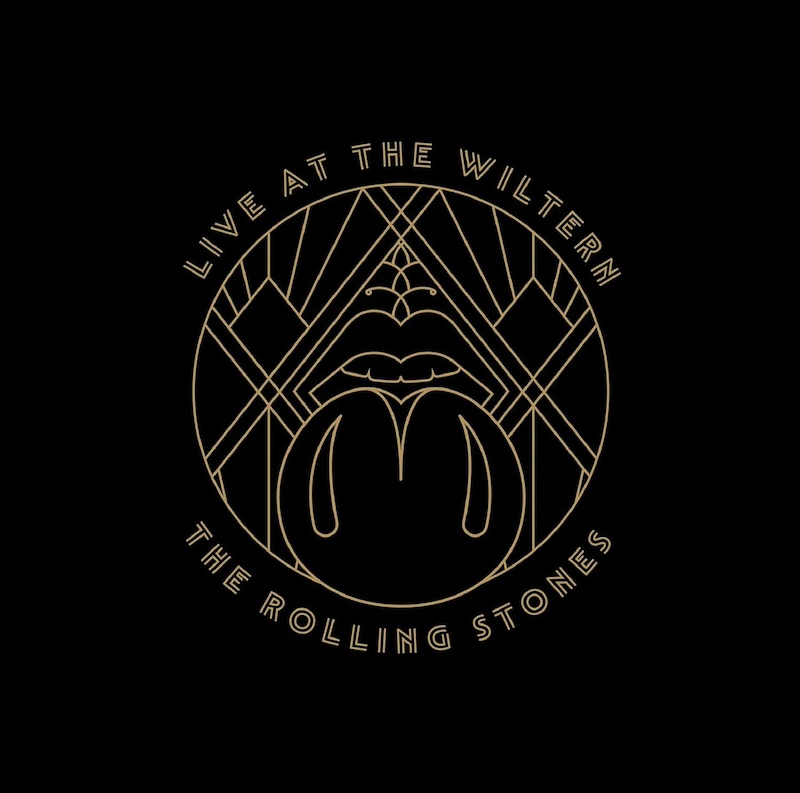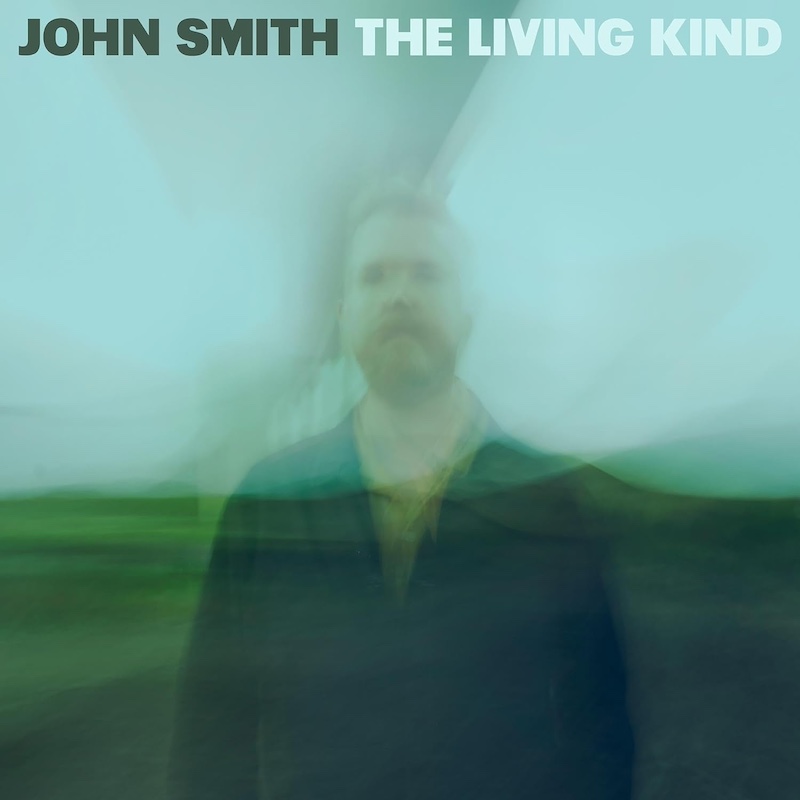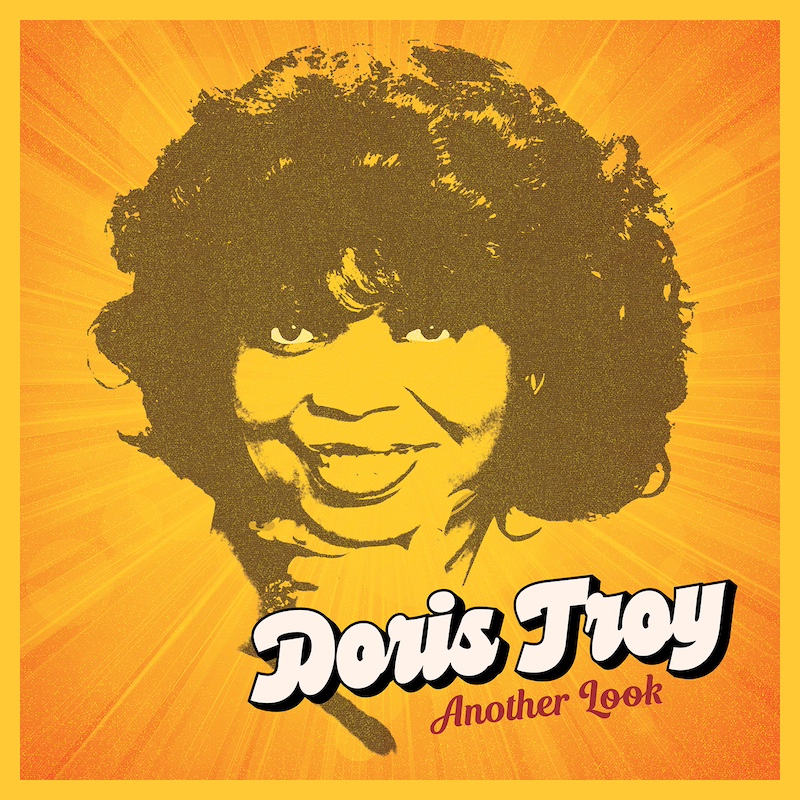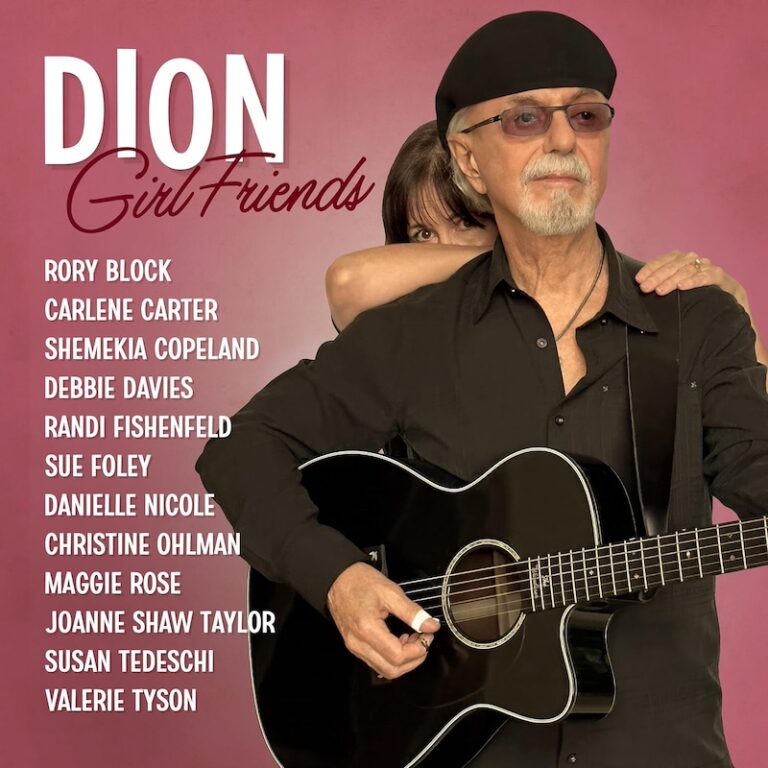Dion DiMucci, one of rock’s most deservedly celebrated singers, regularly occupied high positions on the pop charts from 1957 to 1963, first with his group the Belmonts, and then on his own. He hasn’t had a hit since 1968’s “Abraham, Martin, and John,” but that’s not because his abilities have diminished. Rather, it’s because – aside from occasional exceptions like 2000’s great “Shu Bop” doo-wop excursion – he has over the last half-century mostly eschewed music with the greatest commercial potential in favor of blues rock, which reaches a smaller audience.
In recent years, he has treated that audience to a series of excellent albums, including 2020’s Blues with Friends, which features such guests as Jeff Beck, Van Morrison, Paul Simon, and Bruce Springsteen; and 2021’s Stomping Ground, where his accompanists include Mark Knopfler, Eric Clapton, and Rickie Lee Jones.
If you’re familiar with either of those CDs, you won’t be surprised by the new Girl Friends. Like those earlier releases, this one is dominated by new material co-written by the singer and Mike Aquilina, who has been collaborating with Dion since 2011. And like the earlier albums, Girl Friends finds him sharing center stage with other artists – in this case, as the title suggests, with female performers. They’re mostly not as well-known as the guests on the other records, but they’re all supremely talented.
Highlights include “Don’t You Want a Man Like Me,” which incorporates vocals and slide guitar by the inimitable Rory Block; the infectious, rock-inflected “Hey Suzy,” a song that Dion previously featured on 2000’s Deja Nu and that offers lead guitar and vocals by Sue Foley; and “Mama Said,” where Dion trades verses with the soulful Shemekia Copeland.
But the best cut may be the one that’s least typical of the program: the anthemic, strings-spiced “An American Hero,” which finds Dion dueting with Carlene Carter. This number, which Dion describes as a “love song to the American people,” sounds like a follow-up to Blues with Friends’ terrific “Song for Sam Cooke (Here in America).” It’s moody and moving and more proof, if anyone needs it, that the now 84-year-old Dion still has what it takes to make great music.

Rolling Stones Rock the Wiltern
Maybe Mick Jagger “can’t get no satisfaction,” but if it’s live Rolling Stones albums you’re after, you certainly can. The group has released a ton of them, including A Bigger Bang Live at Copacabana Beach, Bridges to Bremen, Bridges to Buenos Aires, El Mocambo 1977, Get Yer Ya-Ya’s Out, Got Live If You Want It, Grr Live!, Licked Live in NYC, Love You Live, On Air, Rock and Roll Circus, Steel Wheels Live, Sticky Fingers Live at the Fonda Theatre, Still Life, and Sweet Summer Sun: Hyde Park Live. Especially since the programs on these albums contain lots of duplication, it’s reasonable to ask whether even serious fans need yet another live set.
For some, the answer may well be No. Still, the new Live at the Wiltern – which embraces audio and video versions of a 2002 Los Angeles concert – offers several reasons to open your wallet. For starters, while its wide-ranging 20-song program features such often-played numbers as “Honky Tonk Women,” “Start Me Up,” “Brown Sugar,” and “Jumpin’ Jack Flash,” it also includes a couple that don’t appear on any of the aforementioned LPs: “Dance Part 1,” which is drawn from 1980’s Emotional Rescue; and “That’s How Strong My Love Is,” which the Stones first featured on the classic 1965 studio album Out of Our Heads.
Second, the highlights here include a guest spot by the late, great Solomon Burke (whose own hour-long set preceded the Stones’ performance). On Live at Wiltern, he takes the stage to sing along with Jagger on his 1964 gem, “Everybody Needs Somebody to Love.”
Third, while most of the Stones’ live albums preserve shows performed for huge audiences, this one (like El Mocambo 1977) finds the band in the sort of intimate (relatively speaking, at least) setting that seems to bring out the best in them. Their Wiltern club audience included only around 2,500 people, among them such musical luminaries as Neil Young, Tom Petty, Stephen Stills, and Sheryl Crow. As Jagger says in the album’s liner notes, “You get an intensity [in a small club]…that you can’t get in a stadium.”
Finally, while many of the group’s other live albums are either audio-only or come with standard-definition Blu-rays, this one packs in a widescreen Blu-ray with DTS-HD Master surround sound.
The band – backed by such regular sidekicks as keyboardist Chuck Leavell, saxophonist Bobby Keys, and percussionist Jim Keltner – is in fine form throughout. Jagger, Keith Richards, and Ronnie Wood are all on fire, and the drum work by the late Charlie Watts will remind you of how much he added to the mix.
Also Noteworthy

John Smith, The Living Kind. This seventh full-length album from British folksinger, songwriter, and guitarist John Smith is the first we’ve heard from him since 2021’s The Fray, which found him grappling with difficulties that included his wife’s failed pregnancy and a cancer diagnosis for his mother.
Mostly recorded live in a studio in Maine, the well-produced The Living Kind contains 10 poetic, self-penned songs (four crafted with co-writers). Some still find him struggling; in “Candle,” for example, he sings, “There are days when I find it easy / And there are days I don’t find at all / When I reach for the hands that held me / And they’re waving at me as I fall.” However, this is mostly an album about persevering, putting one foot in front of the other, and heading toward a better day.
Complementing Smith’s heartfelt lyrics are warm, engaging vocals and consummate fingerstyle and slide guitar work. Another plus is Smith’s backup crew, which judiciously adds such instruments as sax, clarinet, and strings.

Doris Troy, Another Look. Though the late R&B singer Doris Troy had only one hit – 1962’s excellent and widely covered “Just One Look,” which she co-wrote – her career included more than a few other high points: the Beatles signed her to Apple Records, for example, and she released an album for that label that George Harrison co-produced. She also added vocals to such well-known songs as the Rolling Stones’ “You Can’t Always Get What You Want” and Carly Simon’s “You’re So Vain,” as well as to Pink Floyd’s Dark Side of the Moon LP.
Unfortunately, Another Look contains material from the least-notable period of Troy’s career: the mid- to late-1970s when she attempted to jump on the disco bandwagon with minimal success. The 13-track set features only eight songs (five of which appear in two versions), among them, Studio 54–ready renditions of – believe it or not – Tommy Edwards’s 1958 ballad, “It’s All in the Game” and the Eagles’ “Lyin’ Eyes.” Both are excellent tunes, but the disco arrangements here make them sound pedestrian, and the other tracks are even less impressive.
Troy could be a fine singer, but for her best recordings, you’ll have to look elsewhere.
Jeff Burger’s website, byjeffburger.com, contains five decades’ worth of music reviews, interviews, and commentary. His books include Dylan on Dylan: Interviews and Encounters, Lennon on Lennon: Conversations with John Lennon, Leonard Cohen on Leonard Cohen: Interviews and Encounters, and Springsteen on Springsteen: Interviews, Speeches, and Encounters.



